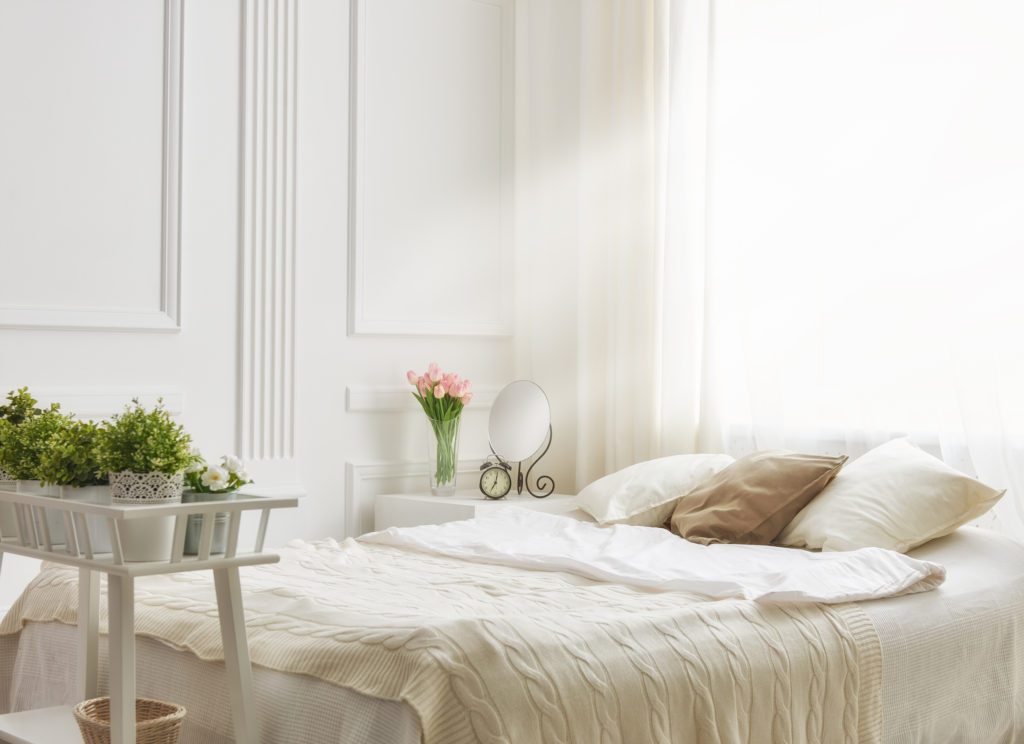How Much Sleep You Really Need and it’s Effect on Skin

You can dab on all the snail mucin, peptides or whatever new miracle ingredient there is on your skin, but one of the best things you can do for it is priceless: get enough sleep. While you may think a lack of sleep just shows up as dark circles or puffiness, it can actually lead to breakouts and premature ageing. We’ve broken down how much you really need and why below:
Why You Need Sleep
“Clinical and scientific research shows us that adults need 7-9 hours of sleep,” says neuroscientist Claudia Aguirre. She adds, “Studies show that even 6 hours a night have an increased link to stroke and other inflammatory events.” Why is sleep so essential for the human body? “The energy resources that the brain requires has some by product. It’s like driving a car, you burn up some fuel but the fuel inevitably leads to exhaust,” says she. “The brain, during sleep, and only sleep is when it cleans up the toxins.” Likewise, the skin has its own circadian clock and evening is prime time for repairing damage and for rebuilding cells and tissues.
How it Affects Your Skin
“When we sleep, cell division rates increase and the skin heals damage from the day while cortisol levels decrease,” says N.Y.C dermatologist Joshua Zeichner. While we slumber, different hormones are secreted to help restore and repair the body. “All hormones have some pattern, day to night,” says Aguirre. Disruptions in the sleep cycle may result in an increase in cortisol which can lead to skin inflammation, improper healing and conditions like acne, and rosacea. It induces the adrenal glands into overproduction of cortisol, a steroid, which in turn makes sebaceous glands produce more oil and make skin extra oily.
Sleep deprivation, like stress, creates a lot of reactions in the body; one being that it can create a cascade of various hormonal mechanisms that can worsen acne. Whether you’re moving across time zones and suffering from jet lag or have been pulling all nighters, “a loss of sleep can shift hormonal patterns,” says Aguirre. For example, “melatonin is released during sleep, and is a natural antioxidant in the skin, it scavenges for damage that can hurt skin cells,” says L.A. dermatologist Annie Chiu. While a lack of sleep alone might not cause acne in individuals, it can exacerbate the likelihood when combined with other factors such as genetics and poor diet.
When inflammation is increased, cell function is reduced. If you’ve ever woken up to red, blotchy skin (especially after a late night out), it can be a sign of inflammation. “First signs of inflammation from the brain show up on the skin because the skin is the largest innervated organ,” says Aguirre. As inflammation remains high in the skin, it can break down the scaffold of the skin, damaging collagen and elastin. “Persistently high cortisol levels can also promote acne breakouts,” says Zeichner. There are repair processes in the skin that occur during hours of slumber, so when you cut this short, your skin will show early oxidative changes that can eventually lead to a variety of skin disorders. While making sure you get enough snooze time, keep skin protected with a night cream rich in antioxidants and moisture (try Mizon Night Repair Melting Rich Cream). At night, skin cells turn over faster and are more susceptible to transpepidermal water loss, “we do lose water through the skin at night it is important to add a moisturizer on at night to prevent dehydration,” says N.Y.C. dermatologist Anthony Rossi. He also suggests adding a humidifier to boost moisture. Also consider hydration from the inside out, drinking water before bed and not drinking dehydrating substances like alcohol are caffeine is also helpful to maintain hydration.
When You Should Go to Bed
The time you go to sleep is also crucial for proper rejuvenation, aim to hit the sheets around 10 or 11 P.M. “Growth hormone is released during the first three hours of sleep but secretion crashes at 2 A.M. so ideally you are falling asleep by 10 or 11 P.M. to get the most restorative capabilities,” says board-certified sleep medicine doctor and neurologist W. Christopher Winter, M.D., of Charlottesville Neurology and Sleep Medicine, and author of the book, The Sleep Solution: Why Your Sleep is Broken and How to Fix It. Next, find out how to fall asleep fast.
Watch Now: The Effects of Sleep Deprivation

Comments